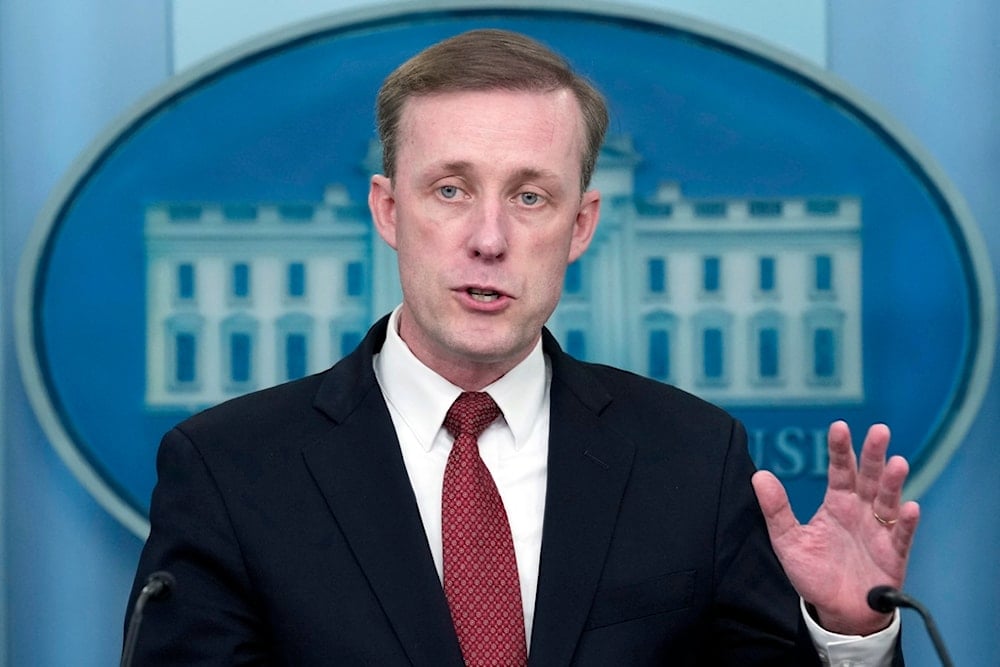US justifies ineffectiveness of weapons in Kiev, says manpower is key
US National Security Advisor Jake Sullivan implicitly criticizes the Ukrainian Armed Forces' incompetence on the frontlines, saying weapons are of no use if manpower fails.
-

White House national security adviser Jake Sullivan speaks during the daily briefing at the White House in Washington, May 22, 2024. (AP)
US National Security Advisor Jake Sullivan tried to justify the ineffectiveness of the newly supplied ACATMS missile to Kiev when asked about the Ukrainian Armed Forces' failures on the battlefield.
In an interview with BBS, Sullivan was asked if the new missile system would shift the dynamic of the battle between Russia and Ukraine, given that Russia acquired significant territory this year, to which Sullivan replied with a list of weapons the US has supplied, ranging from fighter jets to tanks, but ultimately highlighting that the forces' performance on the battlefield is determined not by weapons, but rather manpower.
"It's, rather, today that Ukraine finds itself in a more challenged position on the battlefield, suggesting that there's not a straight line between those weapons systems and how it does on the battlefield. Where is the straightest line between Ukrainian performance and inputs? It's on mobilization and manpower," he explained.
Sullivan reiterated that no weapons would change the circumstances on the battlefield unless the Ukrainian Armed Forces enhance their strategies, saying "Ukraine needs to do more, in our view, to firm up its lines in terms of the number of forces it has on the front lines. It's about munitions and it's about all of the other things that go to a country's national strength, their morale, their cohesion, their industrial base."
Russia updates nuclear deterrence framework
In light of the decision to provide Ukraine with long-range weapons and permission to strike deep Russian territories, Russian President Vladimir Putin approved the framework for Russia's state policy on nuclear deterrence, as outlined in a decree published on the legal information portal on Tuesday.
Putin has warned that such a decision would signify NATO's direct involvement in the conflict.
The decree, which takes effect on November 19, emphasizes enhancing Russia's nuclear deterrence strategy to address potential threats and maintain national security.
It categorizes aggression against Russia or its allies by a non-nuclear state supported by a nuclear one as a joint attack, adding that any aggression from a state within a military coalition is treated as an act of aggression by the entire coalition.
The decree points out that the scope of nuclear deterrence encompasses states, blocs, or alliances that consider Russia an adversary, possess weapons of mass destruction, or provide resources for aggression against Russia.
Conditions that could prompt the use of nuclear weapons include reliable information on the launch of intercontinental ballistic missiles targeting Russia or its allies, actions to isolate parts of Russian territory, or attacks on ecologically sensitive facilities leading to catastrophic consequences, the document indicated.
The Biden administration was afraid that Kiev's potential strikes with long-range missiles could prompt Russia to launch a military reaction against the US and its allies, the New York Times stated on Sunday.

 3 Min Read
3 Min Read









